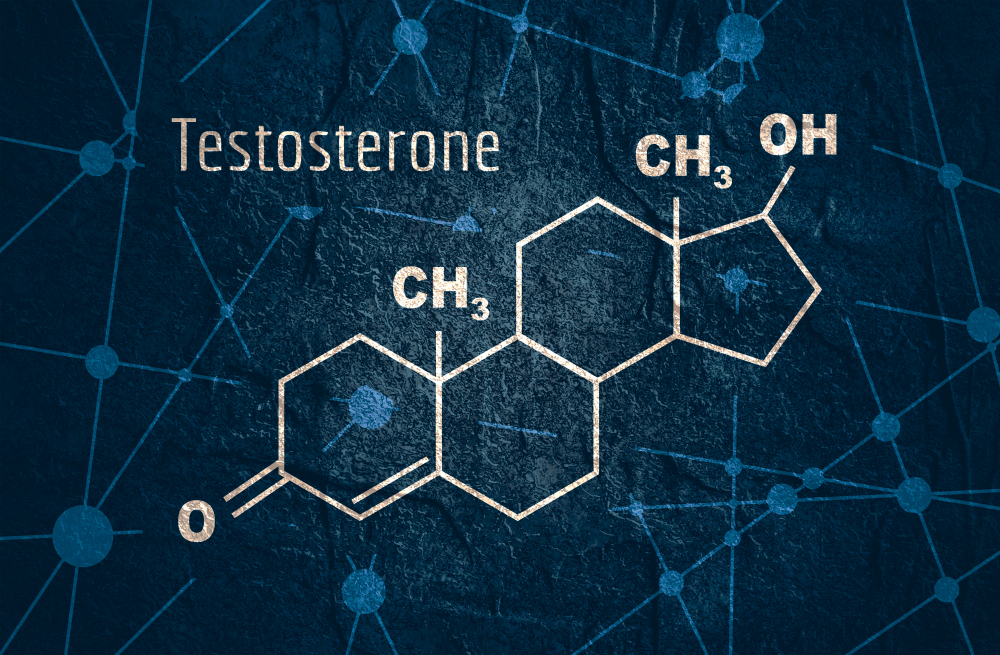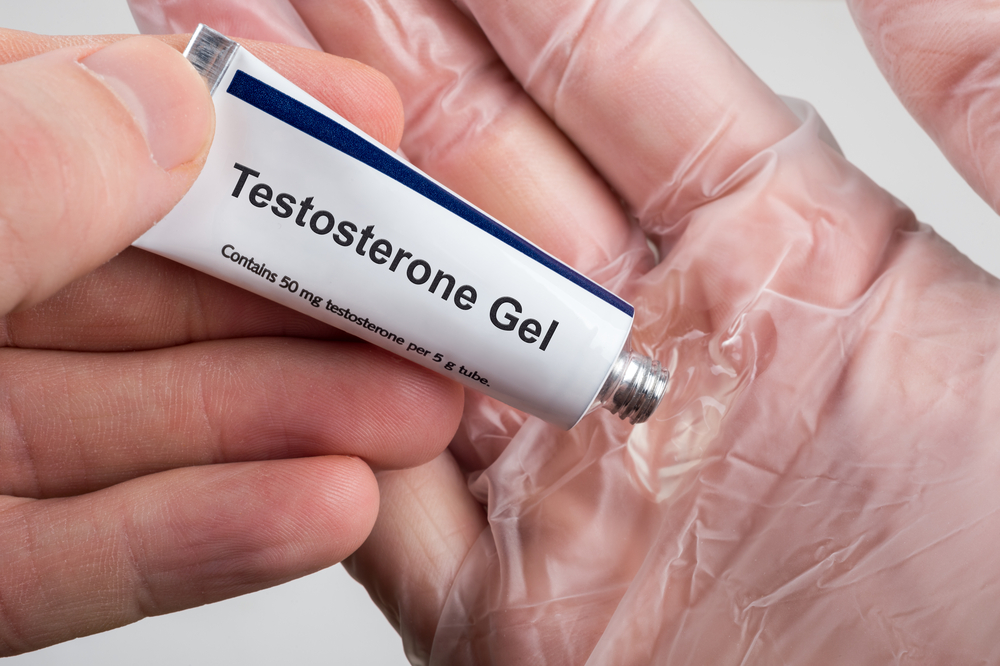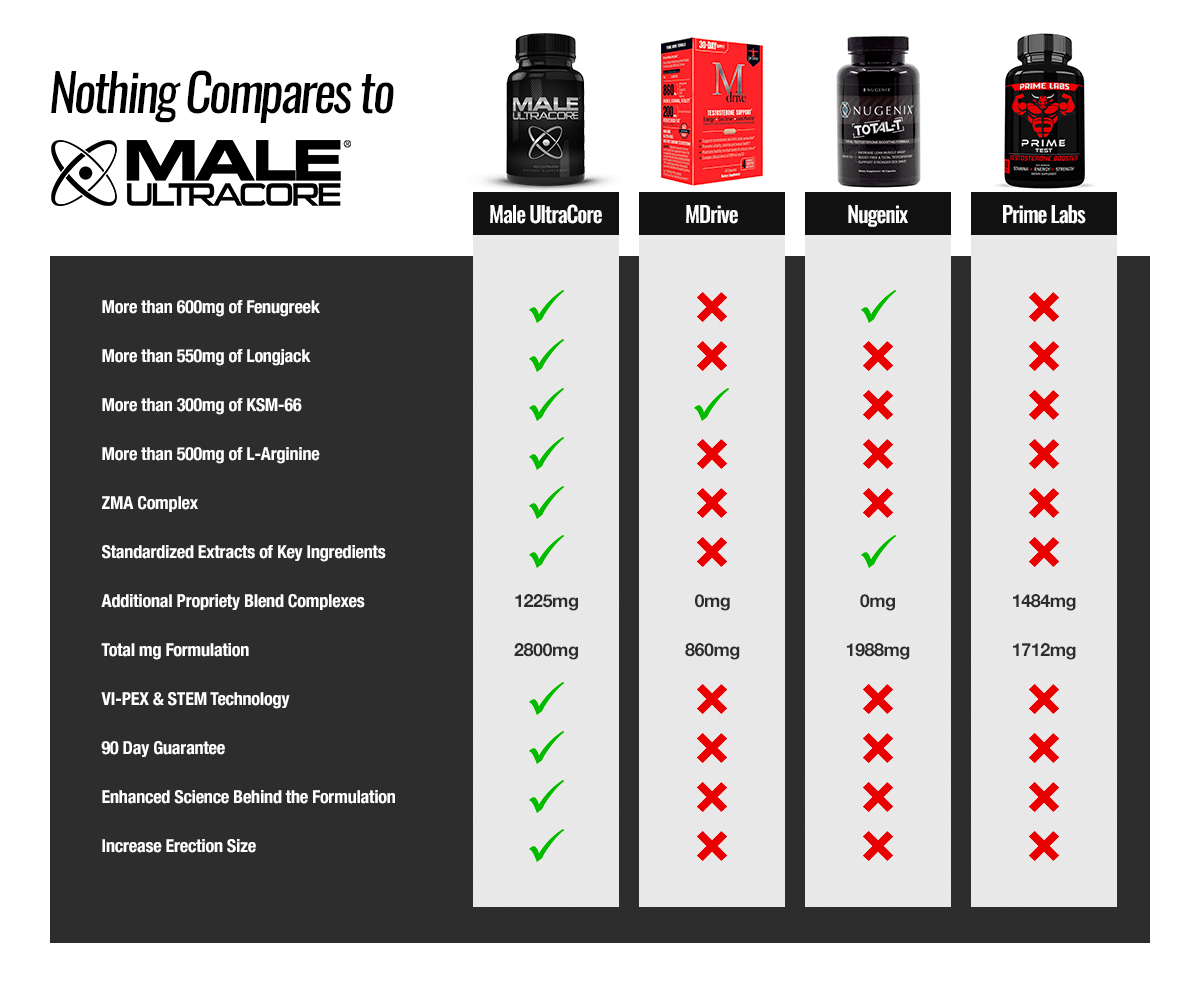So, you’ve got a problem with your sex drive. Is it safe to assume right away that your testosterone levels are low? Most men associate testosterone with libido, and rightly so since the hormone is the one that primarily powers your sex drive.
But testosterone is much more than just fuel for your libido. Men’s overall health actually depends a lot on having normal testosterone levels. Not having enough of the primary androgen can lead to various health conditions like osteoporosis. To find out if your T levels are normal, a simple testosterone measurement test will suffice.
But such tests usually measure both total and free testosterone levels. Is there really any difference between the two? Read on to find out.
How Is Testosterone Produced?
The male body produces testosterone through various mechanisms, but most of the hormone synthesis happens in the testicles. A small portion of testosterone is produced by the adrenal glands.
The pituitary gland secretes a hormone called Luteinizing Hormone (LH), which is then released inside the testicles to stimulate the Leydig cells to start producing testosterone. This means that if the Leydig cells do not get stimulated by LH, or if your LH levels are low, there will be insufficient testicular production of testosterone.

The precursor hormone to testosterone is DHEA or dehydroepiandrosterone. It is also sometimes referred to as androstenolone. DHEA production happens in the brain, the adrenal glands, as well as in the gonads. DHEA can be transformed by the body into testosterone, dihydrotestosterone, and even estrogen.
Total Vs. Free Testosterone
Once your body produces testosterone, the hormone is then released into your bloodstream. This is why you need to draw a blood sample in order to test your testosterone levels.
Once testosterone is in your bloodstream, most of it immediately becomes bound to sex hormone-binding globulin (SHBG) and albumin. Only around 2% of all the testosterone that you produce is left unbound. This is what’s called your free testosterone or circulating testosterone.
The first important difference between free and total testosterone is that the latter has been bound by other molecules, while free testosterone is the hormone in its original, unaltered, and unbound form.
The second and perhaps more important difference between the two is that it’s the free testosterone that is able to connect with testosterone receptors found in various cells in different parts of the body. In essence, free testosterone is what your body uses for most of the functionality associated with the hormone, including muscle growth and development.
On the one hand, your total testosterone level is a measurement of how much of the hormone, whether bound or free, you have in your bloodstream.
Why You Need to Measure Both Total and Free Testosterone
When you have your testosterone levels tested, it’s necessary to measure both your free and total testosterone levels. You may actually have normal total testosterone levels but still suffer from hypogonadism symptoms.
That could happen if your SHBG levels are abnormally high. The more SHBG you have, the more of your free testosterone can get bound to SHBG. This means that even if your total testosterone levels are normal, you can still have abnormally low free testosterone levels.
And that’s problematic because it would mean that your body doesn’t have enough supply of readily available testosterone that your cells can use. Testosterone that’s bound to SHBG can’t actually enter your cells, so your cells won’t be able to use it.
In short, measuring your free testosterone levels along with your total testosterone levels will help your doctor understand why you’re suffering from testosterone-deficiency symptoms such as low libido, erectile dysfunction, and muscle and bone mass loss.
Raising Your Free Testosterone Levels
There are basically two ways to raise your levels of free testosterone. First is to increase your total testosterone levels, and the other is to reduce the amount of your free testosterone that gets bound to SHBG or converted into other hormones like estrogen or dihydrotestosterone.
There are several ways by which you can elevate your total testosterone levels. You can increase your internal production of testosterone, for instance. To do this, you need to equip your body with all the nutrients that you need in order to synthesize testosterone, including omega-3 fatty acids, zinc, and vitamin D. Others also take DHEA supplements.

Testosterone replacement therapy is also another option, but that may have more risks than benefits for you. So you should only do it if your doctor believes it’s really necessary for you.
To prevent your free testosterone from being converted into various other hormones, you’ll need to minimize the actions of aromatase and 5-alpha reductase. These are the two enzymes that are mainly responsible for the conversion of testosterone into estrogen and dihydrotestosterone.
Thus, you can benefit greatly from taking supplements that are known to inhibit aromatase and 5-alpha reductase. Fenugreek, for instance, is a popular aromatase inhibitor, which is why it’s highly recommended for men with low free testosterone levels.
What’s amazing about fenugreek is that its benefits aren’t limited to just raising your free testosterone levels. Fenugreek is also a popular supplement for people who are trying to control their appetite and manage their weight better. Not only that, but fenugreek is also good for diabetic people since the herb can help you control your blood sugar levels.
Other supplements that can be beneficial for you include Tongkat Ali, Tribulus Terrestris, Zinc, and Ashwagandha. Tongkat Ali is a natural way for you to raise your production of testosterone, and you’ll need to have an ample supply of zinc to support your testosterone production.
Tongkat Ali can also help improve your stress hormone profile by lowering your cortisol levels. When you’re stressed, your cortisol levels typically shoot up. Cortisol actually has inhibitory effects on testosterone production, which is why men who are chronically stressed usually have very low testosterone levels.
Tribulus Terrestris and Ashwagandha have also been scientifically proven to help raise testosterone levels. In fact, because they’re effective in increasing testosterone levels, these two herbs are recommended for men with erection and fertility problems.
Increase Your Testosterone Levels with Testosterone Boosters
Male UltraCore is a premium testosterone boosting supplement that is designed to maximize test levels, increase your performance and drive, and give you harder and fuller erections. 





